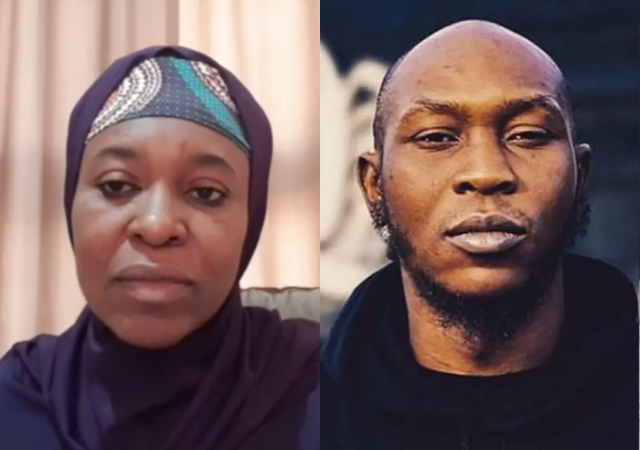A fierce public confrontation has erupted between Afrobeat musician Seun Kuti and prominent activist Aisha Yesufu, sparking a nationwide discourse on women’s rights, religious freedom, and cultural identity in Nigeria. The dispute, which began with Kuti’s controversial comments about Yesufu’s hijab, has evolved into a broader debate about the nature of women’s liberation in African society.
The controversy ignited when Kuti, son of legendary musician Fela Kuti, shared his reaction to a television appearance where Yesufu discussed women’s rights. In a provocative video that quickly went viral, Kuti challenged Yesufu’s credibility as an advocate for women’s liberation, suggesting that her choice to wear a hijab somehow undermined her message about female empowerment.
Kuti’s argument extended beyond personal criticism, as he made broader claims about the relative freedom of African women compared to their counterparts in Arab and European nations. His confrontational approach, particularly his statement “Go and liberate yourself from your Hijab first before you liberate Nigerian women,” has drawn both support and severe criticism from various quarters of Nigerian society.
The controversy has touched a nerve in Nigeria’s ongoing dialogue about the intersection of traditional African values, religious practices, and modern concepts of women’s rights. Kuti’s comments have been particularly controversial as they challenge the compatibility of religious expression with advocacy for women’s rights, a perspective that many find problematic in Nigeria’s multi-religious society.
Yesufu’s response to Kuti’s criticism was equally pointed, as she chose to target his musical career and family legacy. Her reference to Kuti’s father and “discipline over his loin” moved the dispute from a debate about women’s rights into more personal territory, demonstrating how quickly public discourse can deteriorate when cultural and personal identities are challenged.
The public reaction to this exchange has been divided, with social media users engaging in heated debates about the merits of both positions. Some supporters of Kuti argue that his comments raise valid questions about cultural authenticity and the influence of foreign religious practices on African society. Critics, however, point out that his approach was unnecessarily confrontational and failed to respect religious freedom and personal choice.
This incident has highlighted several complex issues in contemporary Nigerian society, including the relationship between religious expression and social activism, the nature of women’s empowerment in an African context, and the role of public figures in shaping social discourse. The debate has moved beyond the initial exchange to encompass broader questions about how different forms of identity and expression can coexist in modern Africa.
Social media comments reflect the complexity of these issues, with some users criticizing Kuti’s aggressive tone while others engage with his underlying arguments about cultural identity and women’s rights. The discussion has revealed deep-seated tensions about how traditional African values, religious practices, and modern concepts of human rights should be balanced in contemporary society.
The timing of this controversy is particularly significant as it comes amid growing global discussions about women’s rights, religious freedom, and cultural identity. In Nigeria, where these issues intersect with complex historical and social dynamics, such public exchanges often serve as catalysts for broader societal discussions.
As this controversy continues to generate discussion across various platforms, it serves as a reminder of the complex relationship between personal expression, religious freedom, and social advocacy in modern Nigeria. The debate has moved beyond the original participants to become a broader conversation about how society can navigate the intersection of traditional values, religious beliefs, and progressive social change.
Whether this exchange will lead to more constructive dialogue about women’s rights and cultural identity in Nigeria remains to be seen. However, it has already succeeded in bringing important questions about religious freedom, cultural authenticity, and social progress to the forefront of public consciousness.



